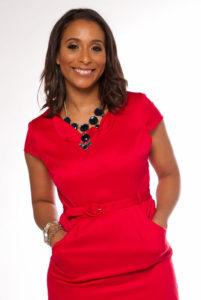 This article is a continuation of my interview with Simone Griffin of HomeFree-USA regarding homeownership and the African American community. In part one, Simone discussed the inception of her organization HomeFree-USA, and why homeownership is critical to the African American community in the United States. In part two, we discuss some of the historic and recent impediments to black homeownership, some of the things our youth can start learning at an early age regarding Financial Literacy, and finally the effect of the Housing Market Boom/Crash on African American wealth.
This article is a continuation of my interview with Simone Griffin of HomeFree-USA regarding homeownership and the African American community. In part one, Simone discussed the inception of her organization HomeFree-USA, and why homeownership is critical to the African American community in the United States. In part two, we discuss some of the historic and recent impediments to black homeownership, some of the things our youth can start learning at an early age regarding Financial Literacy, and finally the effect of the Housing Market Boom/Crash on African American wealth.
Anwar Dunbar: You touched upon this earlier when you discussed disparities in income, but what are the other main impediments holding African Americans back as a group in terms of homeownership?
Simone Griffin: There are a couple of different things. Number one, lenders aren’t as open to lending to people with lower credit scores. Because they’re over-correcting after the housing crisis, they prefer to lend to people with a 750 credit score or higher. Many black people don’t have that, but it doesn’t mean that we can’t pay our mortgages. They simply may not have learned the importance of credit and how to manage it. And it has nothing to do with your education status – they don’t teach personal finance in college, and are just beginning to do so in high schools.
AD: No, they don’t.
SG: If your family doesn’t know anything about credit and you don’t learn about it in school, then how could you be prepared with a 750 or greater score?
AD: Yes, that’s a very good point.
SG: A big difference between us and non-Hispanic whites is that between the Great Depression and the 1960s when America was building its wealth, black people were locked out due “Redlining” and other discriminatory tactics. The Fair Housing and Fair Credit Laws were enacted in the late 1960s and early 1970s, which made it illegal to discriminate against people of color. The problem was, when we tried to buy homes we were expected to make a 20% down payment, and many black people simply didn’t have that type of money. So when home appreciation soared during the 1970s and 1980s, many moderate income black people were unable to buy, which further crippled their ability to build wealth. Many are still trying to catch up, and it’s 2017!
Meanwhile there are other ethnic groups who have money saved and may be able to give their kids a leg up. Their kids may have student loan debt, but they can help them pay down their debt faster, or with a down payment on a house. Mostly though, we’re starting over with every generation. There are still many first generation college students in our communities – and college is a big indicator of how much more money you’ll make throughout your career. So we’re still playing catch up to a degree. This is why HomeFree-USA is so important, because you need that type of knowledge and access to get ahead.
Likewise, we’re positioned to tell the mortgage industry, ‘You say you want diversity, and want to lend to all kinds of people, but your 750 credit score requirement is locking black people out – black people who really could qualify.’ We’re not suggesting they throw a mortgage product out there and tell everyone they’re eligible. We never did that. There were so many people we met with during the housing boom and said, ‘You should not be buying right now.’ But there were certain things they could do to improve their position, and we’re here to guide them through the corrections.
What’s important is a level of education to the borrower and to the lender. The lender needs to understand what the borrowers are dealing with right now – what black people are dealing with. We may have excess student loans, but if you look at non-traditional sources of credit, you will see that these borrowers are typically paying their rent on time for example, something that’s rarely reported to the credit bureau. Cell phone and utility bills are also not always reported.
Many African Americans are unbanked or under-banked and we’re not used to working with the traditional lenders. But that doesn’t mean that we’re not paying our bills, and these are the kinds of things that we’re communicating to the lenders.
AD: I help teach the Dave Ramsey Financial Peace University Ministry at the Alfred Street Baptist Church. As I’ve gone through as a student and a group leader, I think about the things that I was taught home (and not taught). My mother says that she taught us about mortgages, but I don’t remember getting any of that – or I was just too caught up in the distractions of being a young adult. Is there an age that’s too early for our kids to start learning this stuff? Ideally how early should our kids be getting these things?
SG: I think you can start early, but age appropriately. The sooner someone can start working and making their own money, that’s a big thing. But in the interim just teach kids about giving, saving and spending, and allow them to hold their own money. Kids for example, may know that money comes out of an ATM but they don’t understand what goes into making the money. They may ask, ‘Can we get this?’, and you might reply, ‘No it’s not in the budget,’ allowing you to go into an understanding of what the budget is.
My friend has a nine-year old son who is in love with Pokémon cards and always asks her to buy them so he can trade them in school. The problem is, he has no concept of how much the cards cost. I suggested she give him an allotment of money every month for the cards, and once he spends it, it’s gone and that’s it. When it’s his money, as opposed to asking her to spend her money, it will change the level of focus he has on the purchase and care of the cards.
AD: Earlier you talked about African Americans not having access to homeownership when other groups did from post the Depression era to the 1960s. How did the 2008 Housing Market Crash affect African American homeownership since we were already playing catch up and were just getting into the game?
SG: It obliterated our wealth. One big mistake African Americans made is that we looked at our houses as investments. We would buy a house, but not put any money into savings or other investment vehicles. In the 1960s, 70s and 80s, our parents and grandparents had pensions, but most companies have replaced those with 401k plans, which they may not contribute to. We now have to be conscientious about our entire financial life, including retirement.
When the housing crisis hit, it wasn’t all our fault. Some people were truly led astray, and there were certainly many people who shouldn’t have been approved for such large mortgages. I lived in Atlanta during the crisis, and the city was hit brutally by the crisis. I met so many older people whose houses were paid off, and somebody at their church convinced them to get a Reverse Mortgage, which needlessly got them back into debt. They didn’t even know what they were signing. There were so many scams going on in Georgia at that time, including one where people thought they were signing up for one mortgage payment, only to find that there was a carbon copy of the real mortgage document underneath the original one, which required them to pay a far higher monthly payment.
Buyers were often blamed and told they bought too much house. No, some of these people did their best to buy affordably, but were led astray – another reason why HomeFree-USA is so important. If you’re working with us, we teach you the questions to ask your loan officer, realtor, inspector and appraiser.
During the housing boom loan officers were saying, ‘Oh, I can get you qualified for a $400,000 house even though you only make $40,000.’ Couple that with an agent who says, ‘I see you’re qualified for $400,000. Let me show you a house that’s worth $450,000 and we can negotiate down to $400, 000,’ and it ends up finally being around $425,000. You say to yourself, ‘It’s fine because my loan officer says I can pay $500 every month. So, today your payments may be an affordable $500 a month, which makes you feel comfortable in using your credit cards to pay for your new furniture. But five years later you receive a letter stating that you owe $20,000, due within 30 days. After the 30 days and $20,000, your new mortgage payment will be $5,000 per month. This actually happened to several people. The homebuyers were either completely unaware of the balloon loan, or were told by their loan officer that they could simply refinance. But the housing market crashed and they now owed more than their house was worth, meaning they were stuck.
This is why I avoid thinking of a home as an investment. It can go down in value, especially at the beginning of your mortgage before you’ve built any equity. We go financially awry when we make our house our only real investment without understanding that you have to diversify your portfolio.
This interview will continue in part three of Simone Griffin of HomeFree-USA discusses Homeownership and the African American Community. To read some more of Simone’s financial writings, visit her blog at www.moneymagnet.homefreeusa.org. She can also be contacted directly at moneymagnet@homefreeusa.org.
Thank you for taking the time to read this interview. If you enjoyed it, you might also enjoy:
• Simone Griffin of HomeFree-USA discusses homeownership and the African American community part one
• Simone Griffin of HomeFree-USA discusses homeownership and the African American community part three
• Your net worth, your gross salary and what they mean
• The difference between being cheap and frugal
• We should bought Facebook and Bitcoin stock: An investing story
• Challenging misconceptions and stereotypes in class, household income, wealth and privilege
If you’ve found value here and think it would benefit others, please share it and or leave a comment. To receive all of the most up to date content from the Big Words Blog Site, subscribe using the subscription box in the right hand column in this post and throughout the site. Please visit my YouTube channel entitled, Big Discussions76. Lastly follow me on Twitter at @BWArePowerful, on Instagram at @anwaryusef76 and a the Big Words Blog Site Facebook page. While my main areas of focus are Education, STEM and Financial Literacy, there are other blogs/site I endorse which be found on that particular page of my site.



 This article is a continuation of my interview with Simone Griffin of HomeFree-USA regarding homeownership and the African American community. In
This article is a continuation of my interview with Simone Griffin of HomeFree-USA regarding homeownership and the African American community. In  One of the goals of the Big Words Blog Site is to discuss Financial Literacy-related topics, particularly as they relate to the African American community. A key aspect of wealth building is homeownership. Coincidentally, for my very first interview for the site, I had the privilege of interviewing the very knowledgeable Simone Griffin of
One of the goals of the Big Words Blog Site is to discuss Financial Literacy-related topics, particularly as they relate to the African American community. A key aspect of wealth building is homeownership. Coincidentally, for my very first interview for the site, I had the privilege of interviewing the very knowledgeable Simone Griffin of